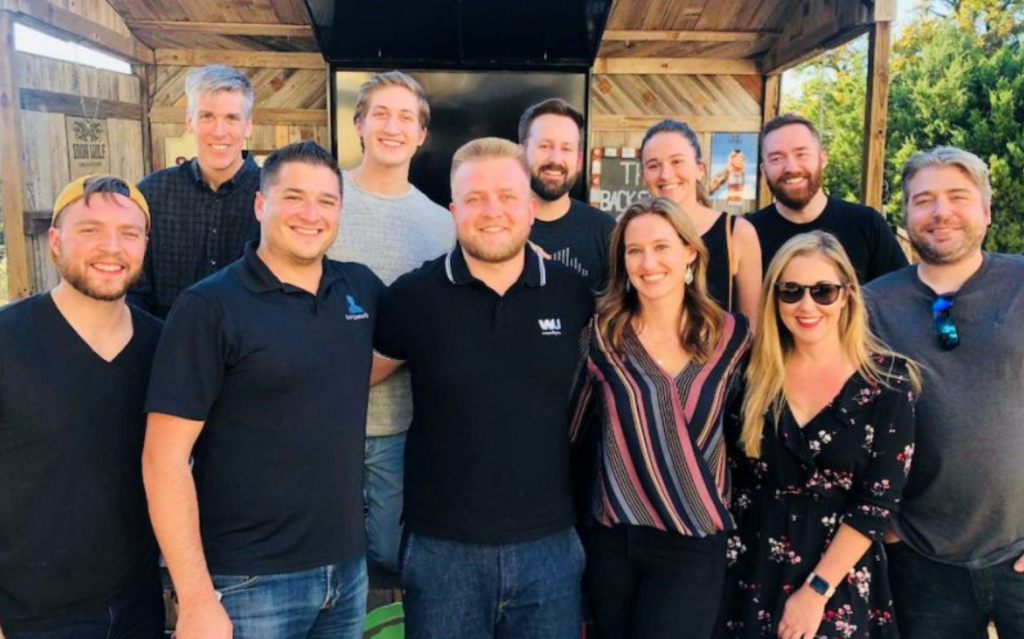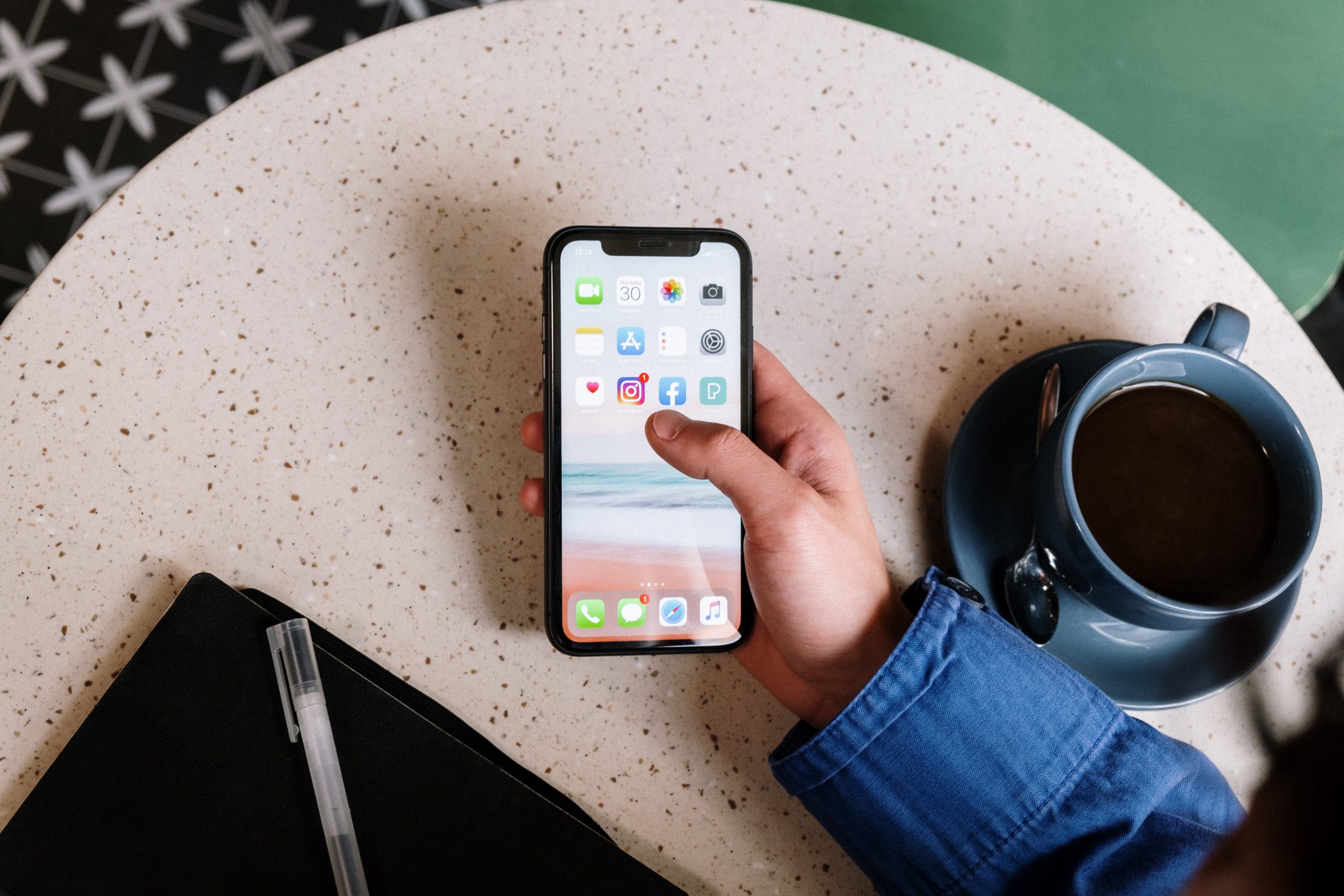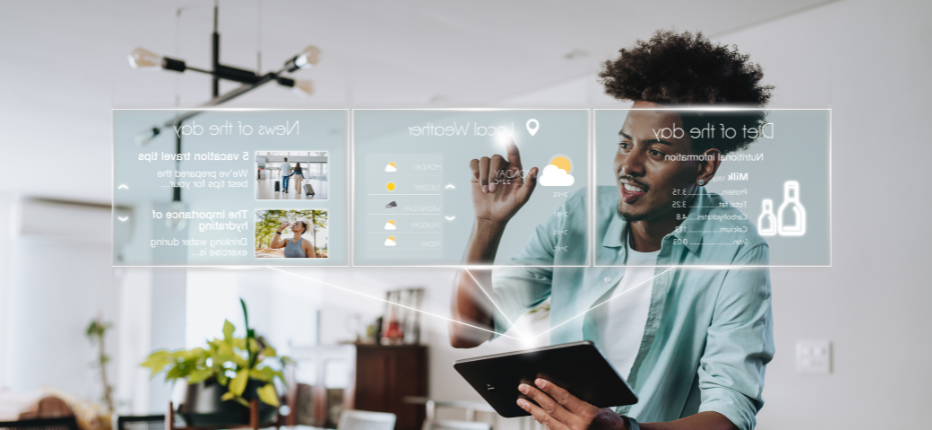Every missed call, double booking, or manual scheduling error costs a business more than just time; it chips away at customer trust. That’s why appointment booking apps have become essential for businesses, from healthcare clinics to beauty salons to consulting firms. What once was a convenience is now a core part of running a service-driven business.
The market growth tells the story: valued at around USD 470 million in 2024, appointment scheduling software is projected to exceed USD 1.5 billion by 2032, with healthcare already accounting for 35% of global revenue. Some forecasts even project USD 42 billion by 2034, driven by rising expectations for frictionless digital experiences.
At WeSoftYou, we believe the best appointment booking apps go beyond simply reserving time slots. They integrate seamlessly with business workflows, support compliance needs, and deliver the kind of user experience that keeps customers coming back. If you’re exploring this path, understanding the key factors behind development cost is the first step toward building a solution that fuels growth.
What Makes an Appointment Booking App Work
At its core, appointment booking apps enable users to schedule and manage appointments, view real-time availability, receive reminders, and often complete payments in one seamless flow. For businesses, this means fewer administrative errors, reduced no-shows, and a smoother customer journey.
Key Features of an Appointment Booking App
- Easy scheduling and management: Simple, intuitive booking flows reduce friction and save time for both staff and customers.
- Real-time availability: Dynamic updates help avoid double bookings and give users confidence in their choices.
- Automated reminders: Push notifications, emails, or SMS reduce no-shows and strengthen customer engagement.
- Secure payments: Built-in, encrypted payment processing provides convenience and trust.
- Calendar and app integrations: Syncing with personal or business calendars prevents scheduling conflicts and centralizes appointments.
Why UI/UX Matters as Much as Features
The most powerful features mean little if the app feels clunky. From our experience, adoption rates soar when the interface is clean, responsive, and intuitive. Clear navigation, thoughtful use of color and typography, and responsive design across devices all contribute to customer satisfaction. Just as importantly, ongoing usability testing and feedback loops allow the app to evolve with users’ expectations.
What Shapes the Cost of Building an Appointment Booking App
When planning an appointment booking app, cost is shaped by more than just the feature list. Strategic choices around platforms, architecture, and design directly impact budget, scalability, and long-term ROI. Here are the core factors to consider:
Platform Selection: iOS vs Android
Deciding whether to build for iOS, Android, or both is one of the earliest and most critical calls.
- Android offers a broader user base but requires more testing due to device and OS fragmentation.
- iOS users tend to spend more on apps and in-app services, but development must follow Apple’s stricter guidelines.
Choosing the right platform means aligning development with your audience behavior and business model, not just aiming for reach.
Backend Development
The backend is the engine of an appointment booking app, powering scheduling, notifications, and integrations.
- Real-time features like booking confirmations or reminders often require technologies such as WebSockets or push services, adding complexity.
- Integrations with payment gateways, calendars, or third-party APIs also increase development costs but are essential for a seamless user experience.
Investing in a scalable, secure backend is non-negotiable, as it’s what ensures performance and reliability as your user base grows.
Frontend Development
The frontend defines how customers interact with your app — and how likely they are to return.
- Costs depend on the number of screens, level of customization, and design complexity.
- Rich animations and transitions enhance engagement but increase development time and budget.
- A clean, intuitive interface balances visual appeal with performance, ensuring users can book appointments quickly and easily.
Our experience shows that cost discussions shouldn’t be just about saving money upfront. Smart choices in platform, backend, and frontend design create an app that scales with your business, keeps users engaged, and delivers real ROI over time.
Appointment Booking App Development Process and Cost Breakdown
Understanding the development journey helps you budget effectively and anticipate where trade-offs and opportunities for ROI exist. Each phase comes with its own cost drivers:
Planning and Research ($5,000 – $15,000)
This stage defines the foundation of your app: business goals, target users, core features, and technical scope. Market research, competitor analysis, and user persona development shape a solution that’s differentiated and user-centric.
Costs here vary depending on how deep you go: a light discovery workshop may cost on the lower end, while in-depth research with industry experts can push higher. It’s always cheaper to validate ideas early than to rebuild later.
UI/UX Design ($10,000 – $30,000+)
UI/UX design translates business strategy into a user journey. Wireframes, prototypes, and visual mockups align the app’s functionality with customer expectations. Design costs rise with complexity, where simple interfaces with standard components are cheaper, while intricate animations, custom branding, and multi-device optimization require more investment. Usability testing at this stage prevents costly redesigns in later phases.
Development ($40,000 – $100,000+)
This is where your app becomes reality. Backend work covers servers, APIs, and databases; frontend development turns designs into interactive screens. Costs depend heavily on:
- Scope (number of features).
- Platform choice (iOS, Android, or both).
- Integrations (payments, calendars, third-party tools).
Cross-platform builds and real-time features naturally increase investment. Agile methodologies help keep this phase efficient and transparent.
Testing and Launch ($10,000 – $25,000)
No app should go live without rigorous QA. Functional, performance, compatibility, and security testing ensure reliability across devices and operating systems. The more complex the app, the more test cycles are required (and the higher the cost). Preparing app store listings, marketing assets, and compliance checks also adds to this phase. Cutting corners here risks damaging your reputation at launch.
Instead of treating these costs as isolated numbers, we help clients connect each phase to business outcomes, like faster adoption, fewer no-shows, higher retention, so every dollar invested translates into measurable value.
Post-Launch and Maintenance ($3,000 – $10,000/month)
Development doesn’t end at launch. Updates, bug fixes, new features, and compliance patches are ongoing costs. Budgeting for continuous improvement is essential to keep the app competitive, secure, and aligned with user expectations. Think of this as protecting your investment. A well-maintained app delivers long-term ROI, while a neglected one quickly loses relevance.
Additional Costs in Appointment Booking App Development
Developing an app involves more than just the core development process. Several additional costs should be considered to ensure the app’s long-term success.
App Maintenance and Updates (15–20% of initial cost annually)
Once launched, your app must stay secure, functional, and compatible with new devices and operating systems. Maintenance typically covers:
- Bug fixes and performance optimization to prevent disruptions.
- Security patches to protect user data.
- Feature enhancements to keep up with customer expectations and competition.
Failing to invest in maintenance risks poor reviews, compliance issues, and user churn, all of which are far more expensive to fix later.
Marketing and Promotion Costs ($5,000 – $50,000+, ongoing)
Even the most feature-rich app won’t succeed without visibility. Marketing is what drives downloads and retention. Typical investments include:
- Paid ads and social campaigns to reach target users.
- PR outreach and influencer reviews to build credibility.
- Industry events and partnerships to generate awareness.
Budgeting for promotion ensures you’re not just building an app but also growing a user base that sustains it.
App Store Fees and Charges
Publishing your app comes with mandatory platform fees:
- Apple App Store: $99/year developer account fee.
- Google Play Store: $25 one-time registration fee.
- Revenue share: Both stores take 15–30% of in-app purchases or subscription revenue.
These costs are minor compared to development, but they directly impact monetization strategies and long-term profitability.
Total Cost of Building and Running an Appointment Booking App
When budgeting for an appointment booking app, it’s important to go beyond core development. Costs include design, backend, integrations, compliance, and also long-term commitments like maintenance, marketing, and app store fees. Here’s a structured overview:
| Cost Category | Details | Estimated Range (USD) | Notes and Insights |
| Planning & Research | Market research, competitor analysis, user personas, technical scoping | $3,000 – $8,000 | Early investment here saves 2–3x in rework later. |
| UI/UX Design | Wireframes, prototypes, user flows, branding, usability testing | $5,000 – $15,000 | Complex branding/animations raise costs. |
| Backend Development | Servers, APIs, database, real-time notifications, integrations | $8,000 – $25,000 | Real-time booking & 3rd-party APIs increase effort. |
| Frontend Development | iOS/Android apps (or cross-platform), interactive screens, responsive UI | $10,000 – $30,000 | Multi-platform support raises costs. |
| Testing & QA | Functional, performance, security, device compatibility | $5,000 – $12,000 | More devices/platforms = higher testing cycles. |
| Launch Prep | App store listings, compliance checks, marketing assets | $1,500 – $5,000 | Often underestimated but essential for traction. |
| Maintenance & Updates | Bug fixes, new features, OS updates, security patches | 15–20% of dev cost/year | For a $50K app, expect $7,500–$10,000 annually. |
| Marketing & Promotion | Paid ads, social campaigns, PR, influencer outreach | $5,000 – $50,000+ (ongoing) | Budget scales with growth ambitions. |
| App Store Fees | Apple ($99/yr), Google Play ($25 one-time), plus 15–30% of in-app revenue | Minor upfront; revenue % | Impacts monetization strategy. |
| Total (Initial Build) | $30,000 – $100,000+ | Basic MVP at lower end, advanced AI-driven app at higher end. | |
Key Takeaways on Appointment Booking App Costs
- Basic MVP ($20K–$30K): Scheduling, reminders, and simple payments.
- Mid-Tier ($40K–$60K): Multi-platform support with calendar, CRM, or payment integrations.
- Enterprise-Grade ($100K–$150K+): AI features, advanced analytics, and healthcare-level compliance.
- Annual Maintenance: 15–20% of initial cost for updates, security, and improvements.
- Marketing Spend: Flexible, depends on growth targets and user acquisition strategy.
Appointment Booking App Costs by Industry
The cost of developing an appointment booking app can vary significantly depending on the industry. Different sectors require different levels of security, compliance, and customization — all of which directly affect budget. For example, a doctor appointment booking app requires strict following of HIPAA compliance.
| Industry | Key Requirements | Typical Cost Range (USD) | Cost Drivers |
| Healthcare & Telemedicine | HIPAA compliance, secure data storage, telehealth integration, payment + insurance modules | $60,000 – $150,000+ | Regulatory compliance, patient data security, video consultation features |
| Beauty & Wellness | Scheduling, recurring appointments, POS/payment integration, loyalty programs | $25,000 – $50,000 | Multi-location support, customer engagement features |
| Professional Services | Calendar sync, invoicing, client management, CRM integration | $30,000 – $60,000 | Complex integrations with back-office tools |
| Education & Training | Class scheduling, group bookings, notifications, online payments | $30,000 – $55,000 | Group management features, scalability for large user bases |
| Hospitality & Leisure | Reservations, waitlist management, table/room allocation, upselling modules | $35,000 – $70,000 | Real-time inventory management, loyalty systems |
Regional Cost Variations in Appointment Booking App Development
Where you hire your development team plays a major role in the final budget. While the app’s complexity and features determine the scope, regional differences in labor costs and expertise can change the total investment by 40–60%.
- United States & Western Europe ($80 – $150/hour). Development in the US or UK offers proximity, shared time zones, and direct access to talent, but at a premium. For complex or regulated projects, this can be worthwhile — though budgets escalate quickly.
- Eastern Europe ($40 – $70/hour). Countries like Ukraine and Poland are known for strong engineering talent, modern tech stacks, and cultural alignment with Western markets. Offshore development here often delivers enterprise-grade quality at 40–60% lower cost than US teams, making it an attractive option for startups and SMEs balancing budget and quality.
- Asia ($20 – $40/hour). India, Vietnam, and the Philippines provide the lowest hourly rates. While this can be effective for simple MVPs, challenges may include higher communication overhead, time-zone differences, and varying quality standards.
Many businesses choose a hybrid approach; they partner with teams in regions like Eastern Europe that balance cost efficiency with technical depth. At WeSoftYou, with headquarters in Ukraine and offices in the US and UK, we’ve seen how this model enables clients to access top-tier developers without inflating their budgets.
Overlooked Costs in Appointment Booking App Development
When estimating budgets, many businesses focus only on core development. But some of the most impactful expenses come from hidden or recurring costs that are easy to overlook, and they can add up quickly if not planned for.
- Third-Party Integrations (Stripe, Twilio, Calendars). Payment gateways like Stripe or PayPal, SMS/email APIs like Twilio, and calendar integrations (Google, Outlook) all have usage-based fees. While they streamline development, these ongoing costs scale with user adoption.
- Compliance (HIPAA, GDPR, PCI DSS). Industries like healthcare, finance, or education may require compliance with strict regulations. This can increase upfront development costs (for encryption, audit trails, data handling) and also add recurring expenses for audits and certifications.
- Infrastructure & Hosting (AWS, GCP, Azure). Running the backend isn’t free. Cloud hosting, databases, load balancers, and storage typically add hundreds to thousands per month, depending on traffic. As your app scales, infrastructure can become one of the largest recurring expenses.
Budgeting only for “development” risks underestimating total cost of ownership. When partnering with us, you have a piece of mind, as we help our clients map out these hidden costs upfront, ensuring the app remains profitable over its lifecycle.
Smart Ways to Reduce Appointment Booking App Development Costs
Building an appointment booking app is an investment, but there are proven strategies to optimize your budget without sacrificing quality. From our experience, here’s what works best:
Outsource Instead of Hiring In-House
Maintaining an internal dev team comes with high overhead: salaries, benefits, and infrastructure. Outsourcing to a trusted software partner like WeSoftYou provides access to top-tier developers, designers, and QA experts without the fixed costs. This model delivers efficiency, flexibility, and cost savings while ensuring enterprise-grade quality.
Start with an MVP and Scale Gradually
Instead of building everything at once, prioritize core features such as scheduling, reminders, and payments. Launching a lean MVP lets you validate market demand, generate feedback, and start monetizing faster. Additional features, like integrations, analytics, or AI, can be phased in as your app scales, keeping costs under control.
Use Pre-Built Components and Frameworks
Reinventing the wheel drives costs up. By leveraging pre-built modules, APIs, and low-code frameworks, development accelerates, testing is simplified, and reliability improves. This approach reduces timelines while leaving room for customization where it truly adds value.
Design with Scalability in Mind
Cutting costs upfront by ignoring scalability often backfires. Designing cloud-native, modular architecture from day one prevents costly rebuilds later. It ensures your app can handle growth, integrate with new systems, and adapt to evolving customer needs.
Plan for Long-Term Maintenance
Ongoing maintenance typically costs 15–20% of initial development annually. Allocating budget early for updates, security patches, and OS compatibility keeps your app stable and user-friendly, avoiding expensive downtime or rushed fixes.
Leverage Market Insights to Avoid Waste
Thorough market and competitor research helps you prioritize features users actually value — and avoid sinking resources into functionality no one needs. This ensures your budget is spent where it matters most.
Your Trusted Appointment Booking App Developers
Even a simple appointment booking app can enhance your business.For example, it can reduce no-shows in healthcare and streamline operations in beauty, education, and professional services.
With 150+ experts across Ukraine, the US, and the UK, WeSoftYou delivers solutions that combine seamless user experience with robust, scalable architectures.
Our portfolio spans fintech, healthcare, and Web3 projects, giving us a unique edge in handling complex integrations, compliance requirements, and secure data management — all critical factors in appointment scheduling platforms. Recognized as an Inc. 5000 Company in 2025 and awarded Top AI Strategy Company 2024, we bring proven expertise to every build.
When you partner with us, you don’t just get an app; you get a system designed to grow with your business, protect your users, and deliver measurable ROI.
Conclusion: Estimating the Total Cost of Your Appointment Booking App
Building an appointment booking app means aligning technology with business goals, customer experience, and long-term scalability. Costs will vary depending on complexity, integrations, compliance, and the industry you serve, but the real ROI comes from reducing no-shows, automating admin tasks, and unlocking new revenue streams.
Our team at WeSoftYou helped healthcare providers, wellness brands, and professional service firms turn scheduling into a competitive advantage. Our approach goes beyond development: we work with you to prioritize features, optimize budget, and design systems that grow with your business.
If you’re exploring how an appointment booking app could fit into your operations, our team can walk you through a tailored cost and development roadmap.
FAQ
Can I develop an appointment booking app on a tight budget?
Yes. The key is to start lean. By prioritizing essential features like scheduling, reminders, and payments, you can launch a functional MVP without overextending your budget. We help clients make smart trade-offs, focusing on what drives the most impact first, then scaling with integrations or advanced features as adoption grows. This staged approach lowers upfront costs while ensuring your app remains high-quality and scalable.
How long does it take to develop an appointment booking app?
Timelines depend on complexity, platforms, and integrations. A basic MVP can be ready in 3–6 months, while more advanced, multi-platform builds may take 6–12 months. Our process includes planning, design, development, testing, and launch, with agile sprints keeping delivery transparent and flexible. This ensures you get a working product quickly, while leaving room for continuous improvements post-launch.
Can I integrate my existing appointment management system with the new app?
Absolutely. Many businesses already use scheduling tools or CRMs, and we specialize in building seamless integrations. Whether it’s syncing calendars, pulling data from your CRM, or connecting with payment systems, our team ensures smooth interoperability. This not only saves resources but also provides users with a consistent and connected experience across all platforms.
What post-launch support does WSU provide?
Launching your app is just the beginning. At WeSoftYou, we provide comprehensive post-launch support, including bug fixes, security updates, feature enhancements, and compliance patches. We also monitor performance and suggest improvements based on real user feedback. Our goal is to ensure your app stays secure, competitive, and aligned with evolving market and customer needs.
What features should an appointment booking app include?
At a minimum, your app should support scheduling, real-time availability updates, automated reminders, and secure payments. For growing businesses, features like calendar sync, staff management, loyalty programs, or telemedicine/video integration can make a big difference. The right feature set depends on your industry and goal. For example, healthcare providers may require HIPAA compliance, while salons may focus on customer loyalty and upselling. We help clients prioritize features that directly impact efficiency, customer experience, and ROI.
Is data security ensured in an appointment booking app?
Yes, but only if it’s built with security-first architecture. A reliable appointment booking app should include end-to-end encryption, role-based access control, regular security audits, and compliance with industry standards such as GDPR, HIPAA, or PCI DSS, depending on your sector. WeSoftYou has delivered fintech and healthcare solutions where security is non-negotiable, and we apply the same strict standards to scheduling apps to safeguard sensitive customer data.
Can an appointment booking app be scaled as my business grows?
Absolutely. The most effective apps are designed with scalability in mind. By leveraging cloud-native infrastructure, modular workflows, and API-driven integrations, your system can handle more users, new locations, and additional features without costly rebuilds. Our team develops booking apps that don’t just solve today’s challenges but also adapt to tomorrow’s growths. This ensures your investment continues to pay off as your business expands.






















